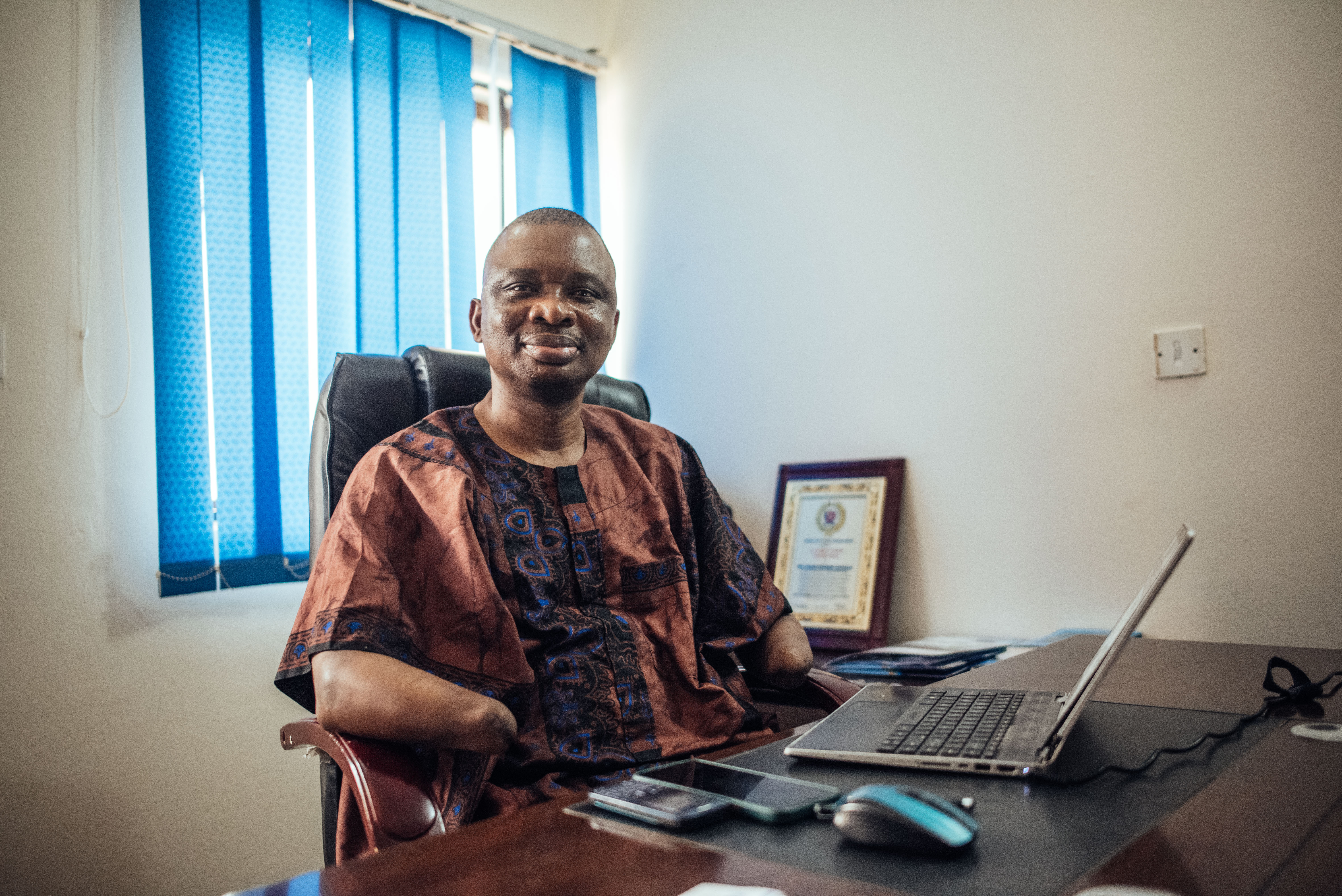
Ensuring that all segments of society can participate equally in social, economic, and political life is an important and vital prerequisite for democracies to thrive. Despite being the world’s largest minority, persons with disabilities continue to face many barriers that hinder their full participation in society, such as discrimination or inaccessibility challenges. At the same time, while numerous countries signed and ratified the United Nations (UN) Convention on the Rights of Persons with Disabilities (CRPD), gaps still exist in providing equal opportunities for persons with disabilities.
According to the UN, persons with disabilities “are disproportionately likely to live in poverty and, too often across Africa [and elsewhere], do not have equal access to education, health care, employment opportunities, housing, social protection systems, justice, and cultural expression and participation in political life.” There is a growing need to foster policy advocacy efforts that reduce key barriers that persons with disabilities face and help build foundations that foster more inclusive democracies and economies.
In the lead up to the International Day of Persons with Disabilities (which took place on December 3), I spoke with David Anyaele, who is the Founder and Executive Director of the Centre for Citizens with Disabilities (CCD). CCD is a nonprofit and human rights organization based in Nigeria focused on promoting the inclusion, participation, and access to justice for persons with disabilities. Prior to the founding of CCD, David was attacked, captured, and set on fire in 1999 by the Revolutionary United Front (RUF) rebels of Sierra Leone. Two of his limbs were also forcefully chopped off because of his identity as a Nigerian. Since that horrific incident, David has been a strong advocate for the inclusion and rights of persons with disabilities across Nigeria.
In my conversation with David, he shared his thoughts on how diverse stakeholder groups, including the local private sector and civil society, can help support the advancement of civic and economic participation for persons with disabilities throughout Nigeria and beyond. Here is an overview of our conversation:
Please tell us more about the Centre for Citizens with Disabilities (CCD). What is an example of an initiative led by CCD that seeks to empower persons with disabilities throughout Nigeria?
CCD is a leader in legislative advocacy and has distinguished itself as an influencer of government at the highest levels in Nigeria. Most recently, CCD was instrumental in the recent establishment of the first-ever National Disability Commission in Nigeria. CCD also successfully coordinated the passage of three disability laws in Nigeria, at both the national and subnational levels. Some accomplishments of CCD’s advocacy efforts include ensuring that persons with disabilities were mainstreamed within Nigeria’s HIV/AIDS prevention strategic plans, securing the inclusion of persons with disabilities in COVID-19 vaccination exercises throughout the country, and contributing to the focus on inclusion of persons with disabilities within the National Electoral Act.
What are some of the key barriers that persons with disabilities continue to face in Nigeria when it comes to engaging socially, economically, or politically?
There are many barriers confronting persons with disabilities in Nigeria. One key barrier is negative perceptions and attitudes towards persons with disabilities, which can create hostile and unwelcoming environments for persons with disabilities seeking to engage in societal activities. Another key barrier is inaccessibility challenges. Based on our studies around access to public infrastructure, more than 95% of public infrastructures in Nigeria are not accessible for persons with disabilities. There are also institutional barriers, such as the lack of policy frameworks and guidance to help state and non-state actors ensure accessibility for all. While Nigeria has made progress in this area, such as the signing of the Disability Act, there is still a need to ensure successful implementation of the Act and continue to reduce barriers that persons with disabilities face when seeking to engage socially, economically, and politically.
What are some ways in which the local private sector, civil society organizations, and governments can work together to address these barriers?
There is the need to build more collaboration between the local private sector, civil society organizations, and governments for the promotion of inclusion and removal of barriers for persons with disabilities. These stakeholder groups can work together in creating more capacity building, sensitization, and awareness programs that help build more inclusive societies. In addition, there is an ongoing need for stakeholder groups to work together to ensure that the development of frameworks on accessibility for persons with disabilities is prioritized and that these tools are implemented.
To learn more about the work of CCD and how to get involved, please visit: https://www.ccdnigeria.org/about-us/
Published Date: February 01, 2023